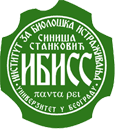Приказ основних података о документу
HYCO-3, an Nrf2 activator that simultaneously releases carbon monoxide (CO), ameliorates type 1 diabetes in a mouse model
| dc.creator | Mićanović, Dragica | |
| dc.creator | Stegnjaić, Goran | |
| dc.creator | Nikolovski, Neda | |
| dc.creator | Momčilović, Miljana | |
| dc.creator | Foresti, Roberta | |
| dc.creator | Motterlini, Roberto | |
| dc.creator | Miljković, Đorđe | |
| dc.creator | Saksida, Tamara | |
| dc.date.accessioned | 2024-01-12T14:59:35Z | |
| dc.date.available | 2024-01-12T14:59:35Z | |
| dc.date.issued | 2023 | |
| dc.identifier.isbn | 978-3-200-09477-2 | |
| dc.identifier.uri | https://benbedphar.org/wp-content/uploads/2023/10/abstract_book_Graz_final.pdf | |
| dc.identifier.uri | http://radar.ibiss.bg.ac.rs/handle/123456789/6473 | |
| dc.description.abstract | Type 1 diabetes (T1D) is an autoimmune disease that leads to the death of insulin-producing pancreatic β-cells. The autoimmune response in T1D becomes chronic as a consequence of regulatory mechanisms unable to counteract this disease. In this study, we evaluated the anti-diabetic potential of a new hybrid compound (HYCO-3) consisting of a CO-releasing molecule conjugated to a fumaric ester derivative that is known to activate the Nrf2 and increase the expression of the CO-producing enzyme heme oxygenase-1. T1D was induced in C57BL/6 mice treated intraperitoneally for 5 consecutive days with multiple low doses of streptozotocin (40 mg/kg BW). HYCO-3 (25 mg/kg BW daily) was administered by oral gavage while the control group received the vehicle (DMSO/sesame oil) for 14 days, starting on the first day of streptozotocin treatment. To evaluate the development of T1D, glycaemia and body mass were measured weekly. At the end of the experiment the pancreas was collected and histochemical analyses for insulin expression were performed. Insulitis, the infiltration of immune cells in the pancreas, was also assessed. We found that treatment with HYCO-3 lowered blood glucose levels compared to the control group in association with a lower insulitis grade and a higher expression of insulin in pancreatic islets. Furthermore, to assess the effect of HYCO-3 on antigen specific response, cells from the draining pancreatic lymph nodes of diabetic animals were stimulated with insulin and HYCO-3 to assess the production of pro-inflammatory markers in cell supernatants. HYCO- 3 was able to down-regulate the production of IL-17 in the cultures where antigen specific response was induced with insulin. Overall, our results show that HYCO-3 ameliorated T1D in C57BL/6 mice by inhibiting the recruitment of immune cells into the pancreas. These results warrant future investigation of cellular and molecular mechanisms by which HYCO-3 acts on immune cells that are of importance in the pathogenesis of T1D. | sr |
| dc.language.iso | en | sr |
| dc.publisher | BenBedPhar Consortium | sr |
| dc.relation | info:eu-repo/grantAgreement/MESTD/inst-2020/200007/RS// | sr |
| dc.rights | openAccess | sr |
| dc.source | 5th Scientific Meeting of the COST Action CA20121: Bench to Bedside Transition for Pharmacological Regulation of NRF2 in non-communicable diseases (BenBedPhar): Translating NRF2 Research into Clinical Practice; 2023 Oct 12-13; Graz, Austria | sr |
| dc.title | HYCO-3, an Nrf2 activator that simultaneously releases carbon monoxide (CO), ameliorates type 1 diabetes in a mouse model | sr |
| dc.type | conferenceObject | sr |
| dc.rights.license | ARR | sr |
| dc.rights.holder | ©2023 BenBedPhar Consortium | sr |
| dc.description.other | 5th Scientific Meeting of the COST Action CA20121: Bench to Bedside Transition for Pharmacological Regulation of NRF2 in non-communicable diseases (BenBedPhar): Translating NRF2 Research into Clinical Practice; 2023 Oct 12-13; Graz, Austria. BenBedPhar Consortium, 2023. p. 41. | sr |
| dc.citation.spage | 46 | |
| dc.type.version | publishedVersion | sr |
| dc.identifier.fulltext | https://radar.ibiss.bg.ac.rs/bitstream/id/16632/abstract.pdf | |
| dc.citation.rank | M34 | |
| dc.identifier.rcub | https://hdl.handle.net/21.15107/rcub_ibiss_6473 |

